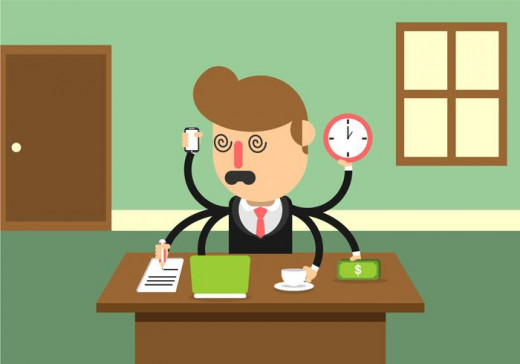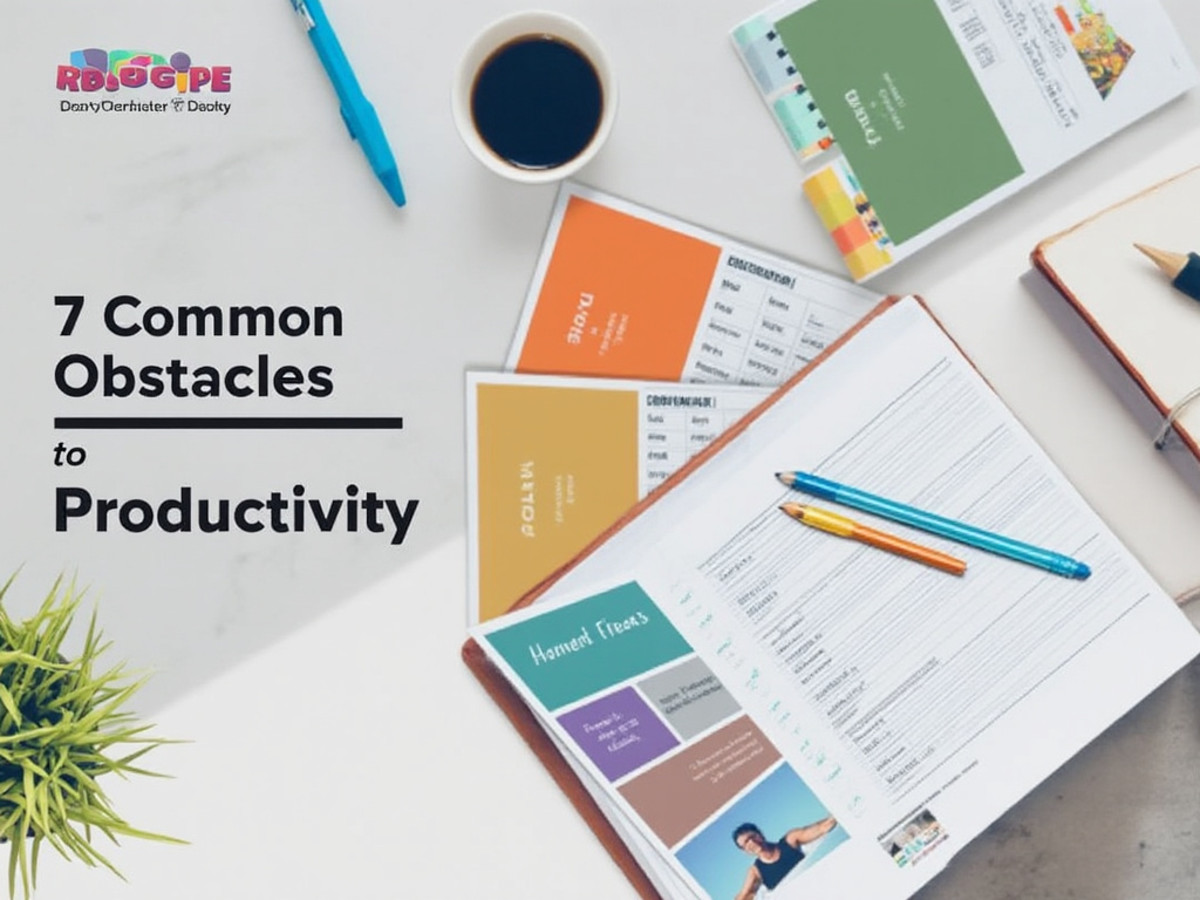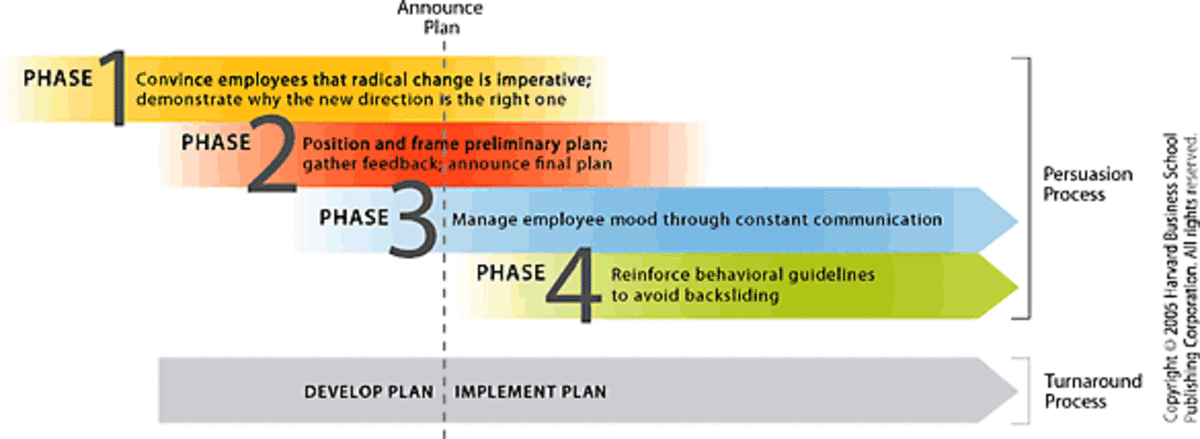Why Multitasking Is Not Helping You Be Productive

A lot of us have already been instilled with the idea that we are more productive when we multitask. What does "multitasking" mean, though? If you look it up on the internet, it will show you two definitions:
mul-ti-task
/verb/
1. (of a person) an apparent human ability to perform more than one task
2. (of a computer) execute more than one program or task simultaneously
Looking at the two definitions presented above, we can say that it will indeed be a good and productive thing to learn the act of multitasking because in idea, if you do more things at once, you will save a lot of time and you will accomplish more. This idea has become well-known and used by everyone that when reading this, we don’t stop to acknowledge that in reality, we are just hurting our productivity and decreasing the quality input of our work.
How did I come up with this?

In a psychological article published in Psychology Today, neuroscientists agreed that our human mind cannot really do tasks simultaneously. Some might still argue with me about this but think for a second. Let’s say you are typing something and then someone calls you and you answered it, you might say that you are doing two things at the same time but no. In reality, you are switchtasking.
Switchtasking is when a person shifts his or her attention from one task to another. Our brain is wired to focus on one thing at a given matter of time, even in split seconds, before we could proceed in doing other things. In the situation given above, answering the call while you are typing switches your attention from typing to talking to the person on the other line. You might say that when you’re in a conversation, you’re still typing but it is not case, nor it is effective.
Why? Your focus and train of thought will be disrupted. You might answer the call and listen to the person on the line but technically, it is a one-way communication since your focus is still on what you are typing. Then, when you listen intently to the caller, you switch again. Hence, losing your train of though on what you are writing. Just when you finish the call and pick up your thought from where you left of in whatever you’re typing, you swift back.
See, you are not really multitasking, you are merely switching from one task to another. However, not focusing on one task at hand has an effect on the time you finish your task, as well. These microseconds of switching and partial attention, if added, creates a huge discrepancy on the time you’re supposed to accomplish one chore. Hence, affecting your productivity.
Another argument would be when a person is perhaps listening to music while cleaning. This case is not considered multitasking, as well. This is a perfect example of background tasking.
Background tasking is when only of the task at hand requires mental and physical effort. In the example above, cleaning requires your attention, while listening music does not. When you, however, listen to a podcast, it will be considered switchtasking because, again, you are shifting your attention between to different chores – understanding what the podcast is about and cleaning.
It is also believed that multitasking hurts your brain. Researchers from Stanford University conducted an experiment with a series of tests to know if people who consider themselves multitaskers have a slight edge over those who are more focused on one task at a time.
In this study, they found out that heavy multitaskers actually underperform compared to light multitaskers – those who focus more on each task are better in organizing and storing information.
Multitasking might also cause serious problems. Let’s take texting while driving, for example. In 2019 statistics, this causes 1.6 million accidents in a year (National Safety Council), about 330 thousand injuries per year (Harvard Center for Risk Analysis Study). This comprises of nearly 25% of all car accidents worldwide.
Taking our eyes off of something while trying to do other things at the same time will take a toll on our and other people’s safety. Often times, if we are to do this, we are prone to making mistakes and decrease the quality of our work.

Since we already established that multitasking is not really effective and productive, what can we do?
Although it is so much easier said than done, we should get out of this habit. However, the longer we are practicing multitasking, the harder it is to focus on one thing at the same time.
The first step that we could do is to identify what are the distractions that can throw us off of our focus. You can maybe start with shutting your phone while doing work to avoid checking social media. In being knowledgeable on what our distractors are, we could minimize and avoid them for us to know what tasks to prioritize.
Next is to increase our focus. You can search for exercises online that can increase your focus. Of course, choose the path that works best for you. Doing this will train your brain to concentrate on one task at a time. It will, then, increase your productivity and the quality of your output.
Then, time management. Create a designated timeframe for all the work that you should do. This way, you can arrange and order your task, as well as allocate strict timing so that you won’t be overwhelmed with doing thing all at the same time.
Lastly, take a break. Doing everything at once will burn you out. Even a computer can only do so much, what more if it’s a person? Set a time for yourself to relax, step back from all the work and enjoy things. You can think and perform better with a refreshed mind.
Again, this all might be easier in perspective but if executed correctly, we will be able to do things efficiently without the consequences of hurting our time, productivity and output quality.
This content is accurate and true to the best of the author’s knowledge and is not meant to substitute for formal and individualized advice from a qualified professional.
© 2020 Eymi Teves








